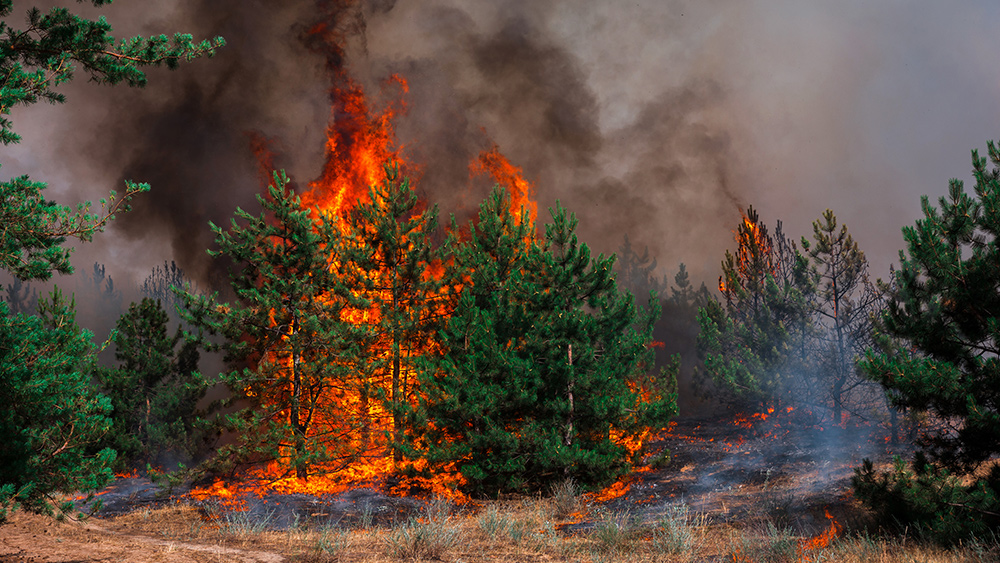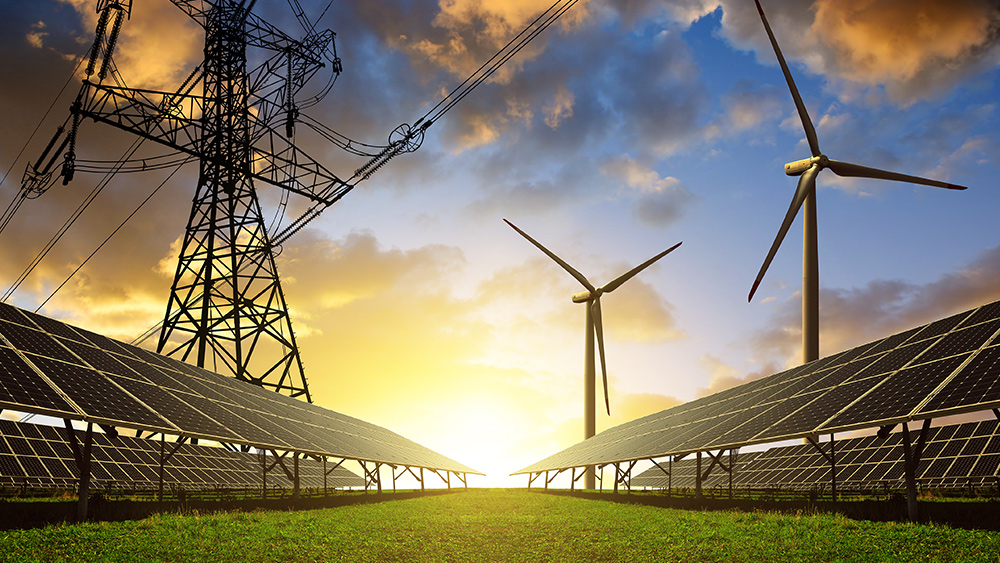 Parler
Parler Gab
Gab
- Wildfires in Alberta’s oil-rich region have halted 344,000 barrels per day (bpd), affecting 7% of Canada’s total crude output.
- Major producers including Cenovus, MEG Energy and Canadian Natural face disruptions due to blazes near production sites.
- Flames approach 470,000 bpd of capacity, risking lasting damage or extended shutdowns.
- U.S. refineries, reliant on Canadian imports for 60% of crude needs, may face higher costs as alternatives are sought.
- Analysts warn of supply tightness amid global energy scarcity, mirroring disruptions caused by geopolitical sanctions.
Chaos in Fort McMurray echoes 2016’s historic wildfire
The scenes resemble the 2016 Fort McMurray inferno, which upended global energy markets by cutting 1.4 million bpd—or over one-third of Canada’s total output—during its peak. While this year’s disruption is smaller, its proximity to critical infrastructure and the timing raise concerns. Alberta Premier Danielle Smith reported Monday that 400,000 hectares have burned in weeks, dwarfing the 9,000-hectare toll from previous Alberta fires. “Climate change is making these events more frequent and intense,” said a Cenovus spokesperson, while emphasizing rapid response efforts. However, officials acknowledge that power outages, like those crippling MEG Energy’s 70,000-bpd project, could delay recovery. MEG has postponed restarting a major facility after losing grid access, though Cenovus insists its Christina Lake site, shuttered on May 29, remains intact and nears a restart. Kyle Janke, a Canadian energy economist, highlighted the market’s “Goldilocks problem”—low inventories amplified by sanctions and maintenance shutdowns. “Every barrel lost in Alberta now has outsized impact,” he said.Regional farmers grapple with climate extremes—and energy crossroads
Beyond oilfields, Alberta’s farmers face compounding threats. Heatwaves in 2021 and recent years have already decimated crops, prompting calls for resilient agricultural practices that balance environmental stewardship with energy production. While U.S. refiners brace for imported crude at higher costs, the debate over North America’s energy future intensifies. Tom Marzari, a rancher near Fort McMurray, described a “new normal” of wildfires: “We’re seeing losses in both our herds and the land that fuels energy. It’s a double-edged sword.”Market tremors: High prices and the cost of dependency
The disruptions ripple beyond Calgary. U.S. refineries, reliant on Canada’s 4.9-million-bpd output (60% of imports), face a critical juncture. Analysts forecast possible shortages in summer driving months, with Gulf Coast refineries eyeing costlier alternatives like Colombian or Mexican crude. Industry sources warn that prolonged shutdowns could strain global markets already stretched by Russian sanctions and anemic spare capacity in OPEC+ nations. While Alberta officials urge patience, critic Mark Becca of energythink.org noted, “The heart of the issue is resilience. Bureaucratic inertia and knee-jerk regulations won’t stop wildfires, but smart energy policies can build survivability.”A blaze of uncertainty in energy’s crossroads
As Alberta’s flames skirt oil-rich landscapes, the crisis is both a warning and a catalyst. Investors, consumers and policymakers must navigate the tightrope between urgency for clean energy transitions and the realities of a world still reliant on hydrocarbons. For now, smoke-filled skies loom over North America’s energy heartland, reminding markets that reliance on fragile systems has never been more perilous—or profitable—than it is today. Sources for this article include: ZeroHedge.com Reuters.com Finance.Yahoo.comChina’s Pacific megaport escalates hemisphere trade war, threatens U.S. strategic edge
By Willow Tohi // Share
U.S. shatters energy production records amid deregulation push
By Willow Tohi // Share
Canada’s new border bill sparks outcry over hidden surveillance powers
By Laura Harris // Share
Jerome R. Corsi issues a controversial challenge to mainstream climate narratives
By Belle Carter // Share
Idaho town rattled by mysterious EARTHQUAKE swarm
By Ava Grace // Share
Governments continue to obscure COVID-19 vaccine data amid rising concerns over excess deaths
By patricklewis // Share
Tech giant Microsoft backs EXTINCTION with its support of carbon capture programs
By ramontomeydw // Share
Germany to resume arms exports to Israel despite repeated ceasefire violations
By isabelle // Share










